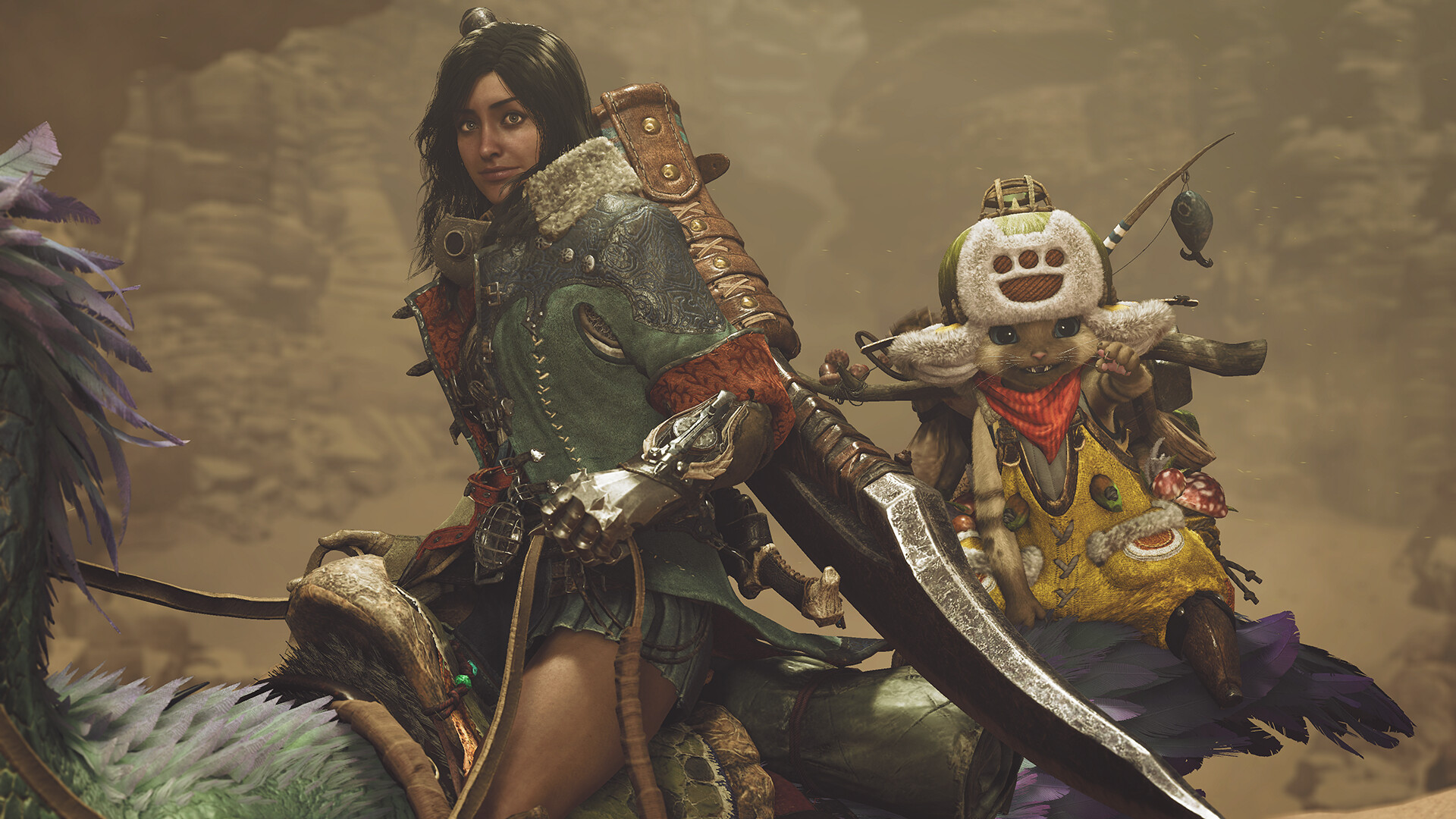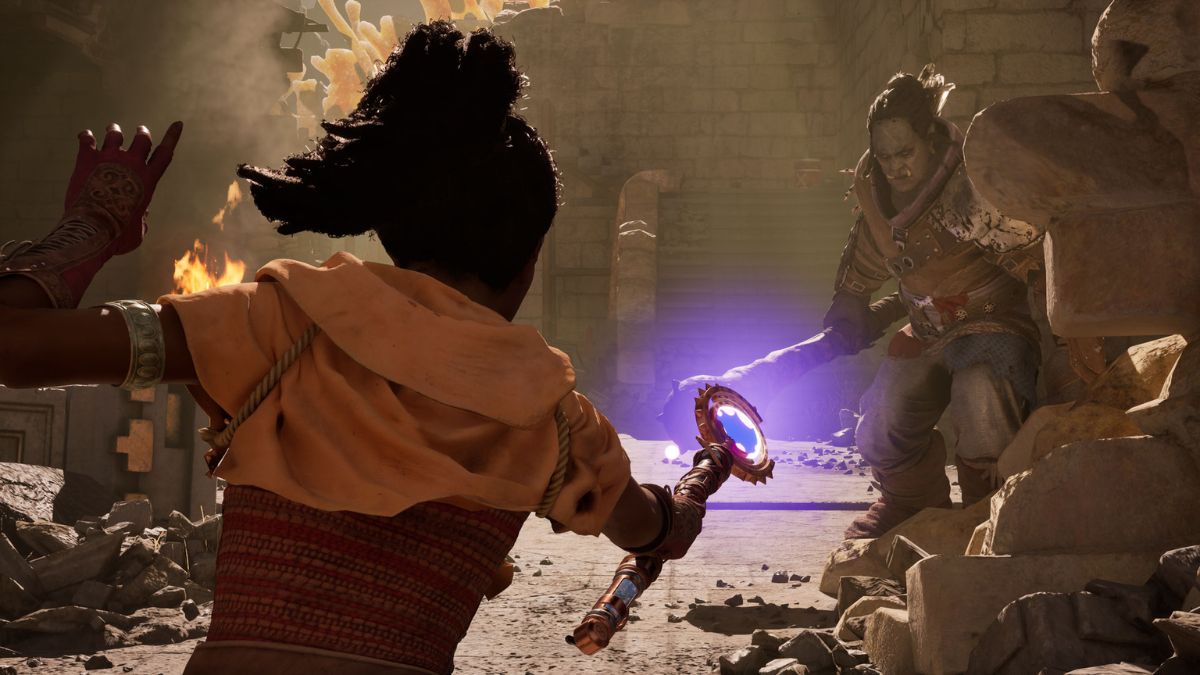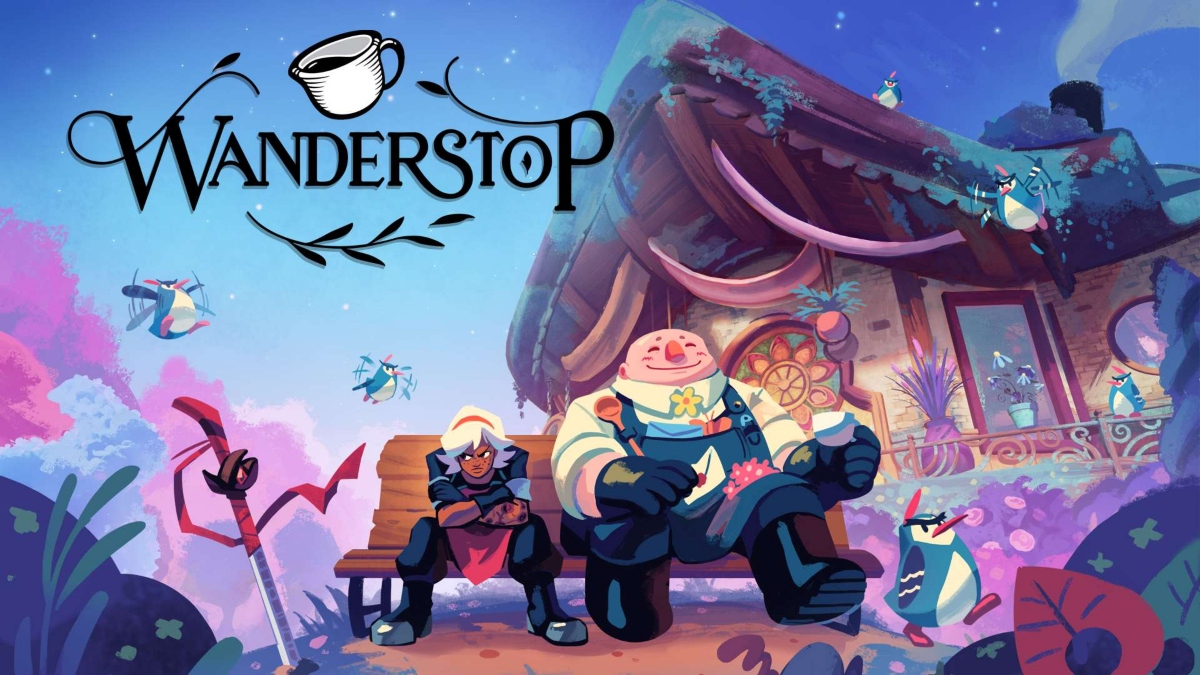
In the Dokapon Kingdom, you’ll find shop-owning cats who seem to know the “meow” routine from Super Troopers, meet a mail delivery stork with a New York accent and be healed by a dog in a pope hat. You’ll fight monsters with a pink mitten, deliver holy curry to the king and climb down into the depths of Heck. In other words, it’s not like much you’ve played before.
Campy and odd, Dokapon Kingdom is not a game that’s meant to be played alone. The title from developer Sting (Baroque, Treasure Hunter G) is a unique hybrid of board games and JRPGs that begs to be experienced with a group. Not only is playing the game much better with a couple friends, but having others around is crucial for getting the most entertainment out of Dokapon‘s more bizarre aspects.
Dokapon‘s main mechanic comes from board games, making it look like a Mario Party rip-off at first glance. Players spin a virtual spinner to move a certain amount of spaces on the map. Like Monopoly, different spaces let you perform different tasks. Some give you a random item or magic power. Some are shops where you can buy weapons and shields. Some make you fight a random monster. Unlike Monopoly, nobody gets to play as a thimble, though. Instead, you choose from three initial character classes, with the ability to change jobs as you progress. Thieves steal items from players as they pass by. Warriors are stronger. Magicians can cast magic twice before each turn.
Players compete against each other and the CPU opponents they’ve selected in many ways. In Normal mode, it’s all about money. The kingdom of Dokapon is ruled by a rich king who’s worried that a monster infestation will leave his peasants unable to provide him with tax money. He’s offering the hand of his daughter Penny (dressed suspiciously like a certain princess from the Mushroom Kingdom) to the one who saves the kingdom. The backstory matters as much as the plots of Clue, Candyland or Fireball Island, though. What’s important is winning.
The best part of Dokapon Kingdom is the huge number of strategies you can use to defeat your opponents. You earn the most money by liberating towns. Land on a town space, defeat the monster squatting there and the net worth of the town is added to yours. Land on the town again and you can invest money to increase its value, kind of like buying houses in Monopoly. You can also wait for someone else to risk their lives against the monster and then use a potion on the town to steal ownership away from them.
Or you can kick some ass. Landing on the same space as an opponent forces you into combat, and the winner can steal a town from the loser. Dokapon really makes beating your opponents rewarding. After defeating them, you can steal their towns, items, magic or gold. You can give their avatar a ridiculous haircut or vandalize their appearance. You can also change your opponent’s name. And you don’t have to settle for just “Poo,” “Fart” or “Bum.” With 14 character spaces available, you can really stretch your vocabulary out to bigger things, like maybe “Poo McFartbum.”

Combat is based on a rock-paper-scissors concept. You literally play rock-paper-scissors if you’re trying to rob a store or town. In player-versus-player or player-versus-monster combat, it’s a bit more complicated. Commands are mapped to the four D-pad buttons (you play the game with the Wiimote held sideways and without the systems motion controls). After randomly picking a card to see who attacks first, each side chooses their action. If the defender matches the attacker’s button-press, then good things happen. If not, the attack will succeed and do damage depending on the character’s stats, which increase with RPG-style experience points.
The randomness of it all can be infuriating for those who prefer skill-based games over chance. Worse, because the CPU-controlled players choose their actions invisibly, it’s easy to think they’re cheating. Higher-level monsters have an uncanny ability to select the right defense commands 10 or more times in a row, leading to at least one instance of me turning my Wii off in disgust. It’s another reason why playing against other humans is far more satisfying.
Randomness reigns on the board as well. Random monster encounters occur on battle spaces, with the monsters increasing in difficulty the farther you move away from your starting point, Dokapon Castle. There are frequent random events as well. Strikes close all shops and towns. Thieves redistribute the wealth from richer players to the poorest. A group of chimpanzees escapes and spreads a plague throughout the kingdom. Also, some squares hide random encounters with NPCs such as a blacksmith who makes high-level weapons and shields, a mole that can dig a hot spring near a town to double its value and a robot assassin who can kill an opponent for a large fee. The huge variety of events, NPCs and character classes makes Dokapon Kingdom a real roller-coaster ride on the first playthrough.
After playing a few times, though, or taking on its surprisingly long campaign mode, there’s just not enough in Dokapon to warrant much commitment to mastering it. The graphics are poor. The music is repetitive and can’t be turned off. The humor is too Saturday-morning-cartoon – you’re laughing at the game more often than with it. Too much of Dokapon is generic RPG fare with monsters we’ve all seen before like dragons, slimes, spiders and zombies, and the gameplay gets tedious. You spend a lot of time waiting for other players to finish their turns, although there are lots of smart options to make the turns of CPU characters go by quickly.
A sequel with better production values and fewer fantasy clichés could be as addictive as Puzzle Quest. Until then, Dokapon is good for a fun date or two, but not a long-term relationship.
Bottom line: It’s just not fun without a group of people. Even then, the fun doesn’t last for more than a few playthroughs, making Dokapon Kingdom a solid night of quirky entertainment with friends and little more.
Recommendation: Rent it, get your best gaming buddies to come over, play it for five hours straight and make sure to stay up until at least 2 A.M. Dokapon Kingdom plus sleep deprivation is guaranteed hilarity. Plus, your dreams will be messed up.
Chris LaVigne apologizes to anyone from the McFartbum family who may have been offended by his choice of a derogatory surname.





![Suikoden I&II HD Remaster Gate Rune and Dunan Unification Wars is Nostalgia Done Right [Review]](https://www.escapistmagazine.com/wp-content/uploads/2025/03/Suikoden-III-HD-Remaster-Gate-Rune-and-Dunan-Unification-Wars-is-Nostalgia-Done-Right-Review.jpg?fit=1200%2C675)







Published: Dec 19, 2008 2:00 AM UTC